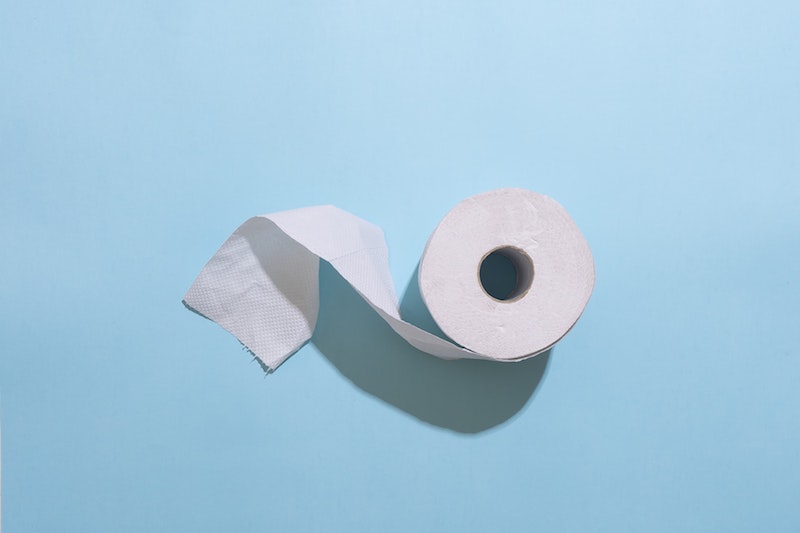I know I shouldn’t sit up late at night scrolling through the 24-hour coronavirus news coverage.
I know reading countless horror stories about those impacted by the pandemic only makes me unnecessarily anxious, yet I do it anyway.
While my biggest concern is for those losing their lives and loved ones to the virus, what also strikes me is that there are two realities emerging: stories of the worst of humanity and stories of the best of humanity.
The worst: people fighting over toilet paper in supermarket aisles.
The best: people setting up neighbourhood WhatsApp groups and offering free toilet paper, canned tomatoes and online classes for those isolating at home.
It’s been both frustrating and heartening to see both of these narratives play out, as our communities grapple with the scary, bizarre time we’re living in.
But as much as it feels difficult to see the end of this disaster right now, we know the world will still be here in six months or six years’ time. And what keeps me up at night is the question of which version of humanity will prevail in the long term.
As Naomi Klein said in her 2007 book ‘The Shock Doctrine’, in times of crisis, things become possible that were not possible beforehand. Governments must intervene much more, and introduce bigger reforms, than they otherwise would have. The ideas that Governments pick up and run with during crises are not necessarily new ideas, but ones that have been lying around for a while.
In the era of COVID-19, which ideas might float to the surface, be picked up by Governments, and persist after the immediate health crisis is gone?
Will they be the ideas that reinforce the best values of humanity: empathy, helping others, and the sense that we’re all in this together?
Or will they be the public policy equivalent of encouraging panic-buying and fighting in the supermarket aisle? That is, there’s a danger that Governments respond to this crisis with ideas and policies that might give a temporary fix, but in the long-term drive division and conflict when this crisis is over.
Our experience so far in Australia points us in both directions.
For example, the lift in the JobSeeker payment to give people enough money to actually live on is incredibly welcome. The catch is, it’s only temporary, fuelling a sense of the ‘worthy jobseeker’ who lost their job due to COVID-19 versus the rest of the ‘unworthy’ jobless who’ll be pushed straight back onto the old, unliveable payment system when this is over.
On the other hand, the program set up by the Victorian Government to employ people to clean public transport, deliver food and do other vital tasks is somewhat akin to a jobs guarantee. This idea that we should expand our public service for the good for people and society at large is something that I hope will persist after the crisis and help solve some of the other problems we have about the changing nature of employment in our modern age.
This crisis is shining a light on the nature of work in a way we’ve never seen before.
We’re realising just how essential our lowest paid workers are – the nurses, the supermarket shelf-stackers, the childcare workers and freight drivers. We’re realising that the large-scale casualisation of the workforce has very real implications for people’s lives.
Our policy response now will inform how we continue to value these jobs and people into the future.
We’ve also seen two paths emerging when it comes to the concept of self-protection.
While it’s rational for people to want to protect their families, panic-buying and hoarding toilet paper at the expense of those in need is the worst manifestation of this urge. Whereas, Victoria setting up local manufacturing of ventilators and personal protective equipment, and a renewed recognition of the importance of locally-grown and distributed food, are forms of self-reliance that are worth maintaining into the future.
Thirdly, it’s often been said that crises bring people together. But this crisis is, literally, physically driving us apart. While it’s medically necessary, I worry what this does to our human psyche and whether we can come out of this crisis with our sense of shared humanity strengthened, or whether our Governments’ language and actions (such as ‘crack downs’ on the hoarding of toilet paper for overseas sale) will stoke longer-term fear, division and racism.
While a positive side-effect of this enforced isolationism is that it may give us (and the Government) the kick we need to bolster our systems and habits for connecting better online, let’s hope it doesn’t have the lasting effect of people keeping to themselves more than ever before.
Lastly, the need for central and clear control in a pandemic is pretty clear. Delay and mixed messages help nobody. But longer term, this can either lead to more cooperation between the states and a better Federation, or to less democracy and more centralisation of power in the Government of the day, which is unfortunately how it is playing out in some states, with many Governments using their power to cancel or postpone Parliament (including in Victoria).
Only time will tell when and how we defeat this virus.
Only time will tell whether it brings out our best selves, or our worst. But more importantly, whether our government’s response is one that elicits cooperation and empathy long-term, or encourages competition and everyone-for-themselves.
I, for one, lay awake at night hoping our better angels prevail, both for us as individuals, and for our Governments and policymakers.

